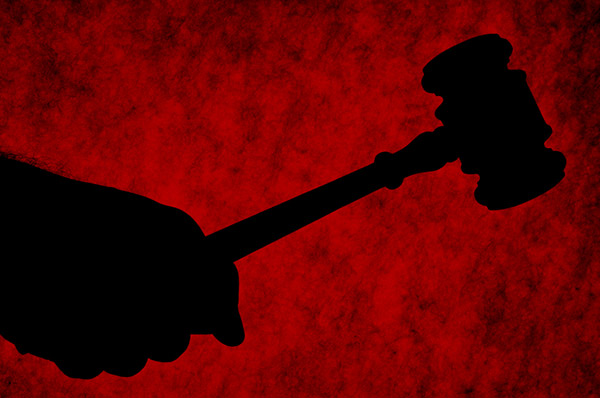Commercial bankruptcies down across Wisconsin, nation, but a change may be looming
By: USA Today Network//August 24, 2020//
Commercial bankruptcies down across Wisconsin, nation, but a change may be looming
By: USA Today Network//August 24, 2020//
Agya K. Aning
Milwaukee Journal Sentinel
Although the economy has seen months of unemployment and business disruption from the coronavirus pandemic, predictions that bankruptcies would skyrocket have not come to pass.
But industry watchers — including some entrepreneurs, lenders, lawyers and landlords — don’t expect the calm to last.
They describe what could come next as a “tidal wave” or “bankruptcy apocalypse.” For them, it’s not so much a matter of if, but rather when.
Data from the American Bankruptcy Institute, an organization the includes lawyers, judges and academics, shows that commercial bankruptcy filings from January through July are down 12% nationwide compared with the same period last year. These numbers do little to belie that America just dragged itself through its worst quarter ever — a loss of 33% — when GDP is set at an annualized rate.
In Wisconsin, bankruptcies are down almost across the board. ABI data show filings for Chapter 11 — which allows distressed businesses to hit the pause button on debt collectors as assets are restructured, often in the form of selling things off — have dropped roughly 12%.
Small business owners in Wisconsin are more likely to opt for Chapter 128 receivership under state law. This cheaper and faster alternative uses a court-appointed “receiver” to take control of a business’ assets. This trustee will often choose to keep the business running as new ownership is sought. The state of Wisconsin does not collect data on Chapter 128 filings.
J. David Krekeler, co-founder of Krekeler Strother S.C., says bankruptcy is a last resort for troubled businesses. He expects a wave to come starting in September.
“They go through their savings, they borrow against their retirement, they borrow from relatives, they max out their credit cards. And only after they’ve exhausted all of their own remedies do they then get professional help,” Krekeler said about most entrepreneurs.
“People are very protective of their businesses, small business owners. They feel that the business is an extension of themselves. They take it very personally,” he said.
Krekeler is advising clients to hold off from filing. He said it is inadvisable for owners to restructure in an attempt to pay off debts until things are on the upswing. But since no one knows how long the pandemic will last, it’s not an easy determination to make.
If and when a bankruptcy filing is made, there is an “automatic stay” that stops creditors from moving against a company.
“They can’t call, they can’t write, they can’t sue, they can’t garnish, they can’t even send you bills,” Krekeler said. “But you’re only going to get that for a little while.”
This grace period allows a business to reorganize and lay out a debt repayment plan. After a period of time, say, 90 or 120 days, repayment begins. Because of this ticking clock, Krekeler said it would be a mistake to file without a positive cash flow.
“You should hold on to your cash and pay only the things you absolutely have to pay,” Krekeler said.
If enough cash can be hoarded until things become more stable, owners can restructure their operations to become solvent, or capable of paying off debts.
How long troubled businesses can hold on depends, in part, on legislation in Washington, D.C.
Federal aid a factor
The federal Paycheck Protection Program provided a lifeline to businesses around the country with over 5 million loans at an average of about $100,000 each. Wisconsin businesses and nonprofits received over 1,600 of them.
The loans are intended to cover payroll, rent, mortgage interest and utilities. The loan is forgivable if an employer maintains or quickly rehires staff.
The application deadline was originally set for June 30 but was extended until Aug. 8. Business owners are watching to see if future congressional action includes another round of loans.
Experts worry that if the government assistance ends, businesses will then burn through their cash reserves.
Elliot Pollack, the CEO of Elliot D. Pollack and Co., an economic real estate and consulting firm in Arizona, said he guesses about 25% to 30% of small businesses will shut down for good.
According to the Small Business Administration, small companies make up 99.7% of U.S. firms.
“It’ll take years to go through the courts, and the only winners will be bankruptcy attorneys. But it’s gonna be a mess,” Pollack said.
“At the end of this I’m sure there’s going to be massive renegotiations,” he said. “It does nobody any good to have massive bankruptcies throughout the country.”
Legal News
- Milwaukee drops security personnel ordinance
- Wisconsin Supreme Court tacks on additional months to already suspended lawyer
- Supreme Court: Abortion protester’s First Amendment rights violated
- These doctors were censured. Wisconsin’s prisons hired them anyway
- Ruling reinstates lawsuit over ‘Black Lives Matter’ school posters
- Wisconsin Supreme Court to consider whether 175-year-old law bans abortion
- Wisconsin man facing bestiality and felony bail jumping charges
- Waukesha County woman indicted in National Health Care Fraud Law Enforcement Action
- Man sentenced to 15 months for fraud involving luxury vehicles
- Wisconsin Department of Justice Fire Marshal investigating fire that killed six
- Ozaukee County first responders save family of three, father and son on Milwaukee River
- Supreme Court sends Trump immunity case back to lower court, dimming chance of trial before election
Case Digests
- Termination of Parental Rights
- First Amendment Rights
- Termination of Parental Rights
- Late Filing
- Real Estate-Attorney Fees
- Ineffective Assistance of Counsel
- Variance-Interpretation of Zoning Ordinances
- Sentencing
- Fourteenth Amendment’s Due Process Clause-Jury Instructions
- Unlawful Collection Practices-Evidence
- Sentencing-Vindictiveness
- Prisoner Grievances-Exhaustion of Administrative Remedies











